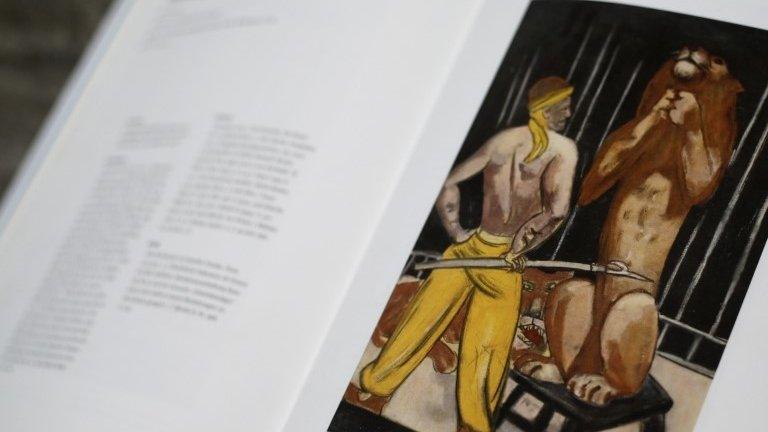'Nazi art' hoarder Gurlitt makes Swiss museum sole heir
- Published
More than 1,400 works were found in Cornelius Gurlitt's Munich apartment
German Nazi-era art hoarder Cornelius Gurlitt, who died on Tuesday, has made the Bern Art Museum in Switzerland his "sole heir".
The reclusive son of Adolf Hitler's art dealer is estimated to have amassed a collection worth up to a billion euros.
The museum said the news struck "like a bolt from the blue", given that it had had no relationship with Mr Gurlitt.
The collection was the subject of a long legal dispute over works that may have been taken illegally by the Nazis.
The Bern Art Museum said that it was delighted at the news that it had been made Mr Gurlitt's "unrestricted and unfettered sole heir", but added that the bequest also posed some questions.
"The Board of Trustees and directors of Kunstmuseum Bern are surprised and delighted, but at the same time do not wish to conceal the fact that this magnificent bequest brings with it a considerable burden of responsibility and a wealth of questions of the most difficult and sensitive kind, and questions in particular of a legal and ethical nature", it said in a statement., external
Mr Gurlitt's father, Hildebrand Gurlitt, was ordered to deal in works that had been seized from Jews, or which the Nazis considered "degenerate" and had removed from German museums.
The priceless collection was confiscated in 2012 by Bavarian authorities from the apartment of his son.
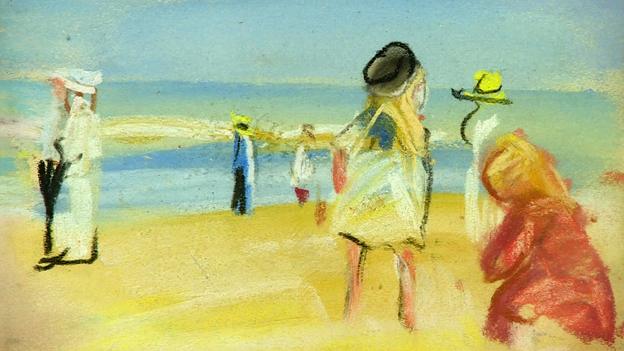
A beach scene by German impressionist Max Liebermann was one of the important discoveries
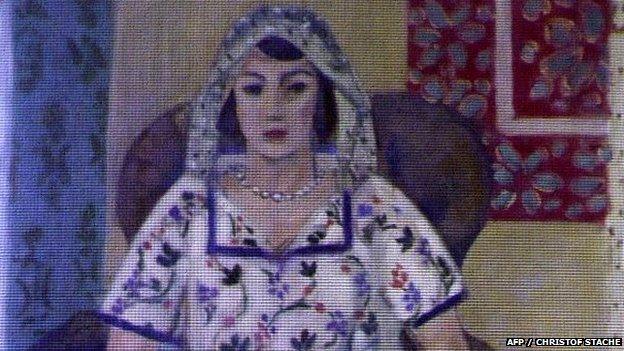
Matisse's Femme Assise is the subject of an ownership claim
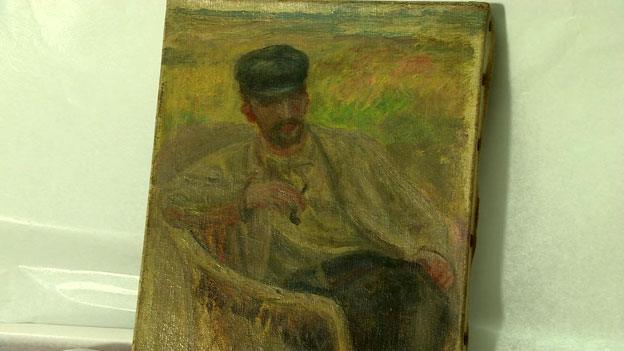
The hoard of paintings includes Pierre-Auguste Renoir's Man Seated
After initially refusing to give up the paintings, Mr Gurlitt changed his position, agreeing to co-operate with the German authorities on establishing the paintings' provenance, and returning them if they were shown to be stolen.
'Wild speculation'
Mr Gurlitt, who had no close relatives, wrote the will within the last few weeks shortly before undergoing heart surgery, according to his spokesman, Stephan Holzinger.
"It now falls to the probate court to determine if the will is valid and whether a contract of inheritance exists," he told the BBC earlier on Wednesday.
"I can understand that there is now wild speculation, but I don't want to comment on that at this stage."
The BBC's Stephen Evans was granted exclusive access to look at some of the long-lost masterpieces in 2014
The German government said earlier that the collector's death would not affect the investigation into ownerships claims on the paintings.
Mr Gurlitt's collection only came to light after a routine check found he was carrying wads of cash on a train from Switzerland, triggering a tax inquiry.
Investigators found more than 1,400 works in his flat in Munich in February 2012 - though they only revealed the discovery in late 2013 - and a further 60 in his house near Salzburg, Austria, earlier this year.
Among them were works by Pierre-Auguste Renoir, Pablo Picasso, Marc Chagall, Emil Nolde and Max Liebermann.
The collection is estimated to be worth up to a billion euros (£850m; $1.35bn).
Under German law, Cornelius Gurlitt was not compelled to return any paintings because the incidents happened more than 30 years ago.
- Published7 April 2014
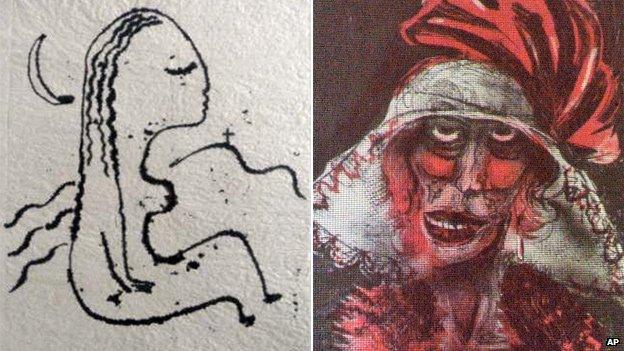
- Published26 March 2014
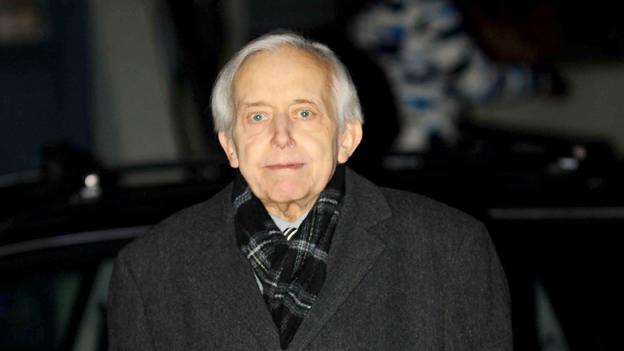
- Published5 November 2013
- Published5 November 2013
